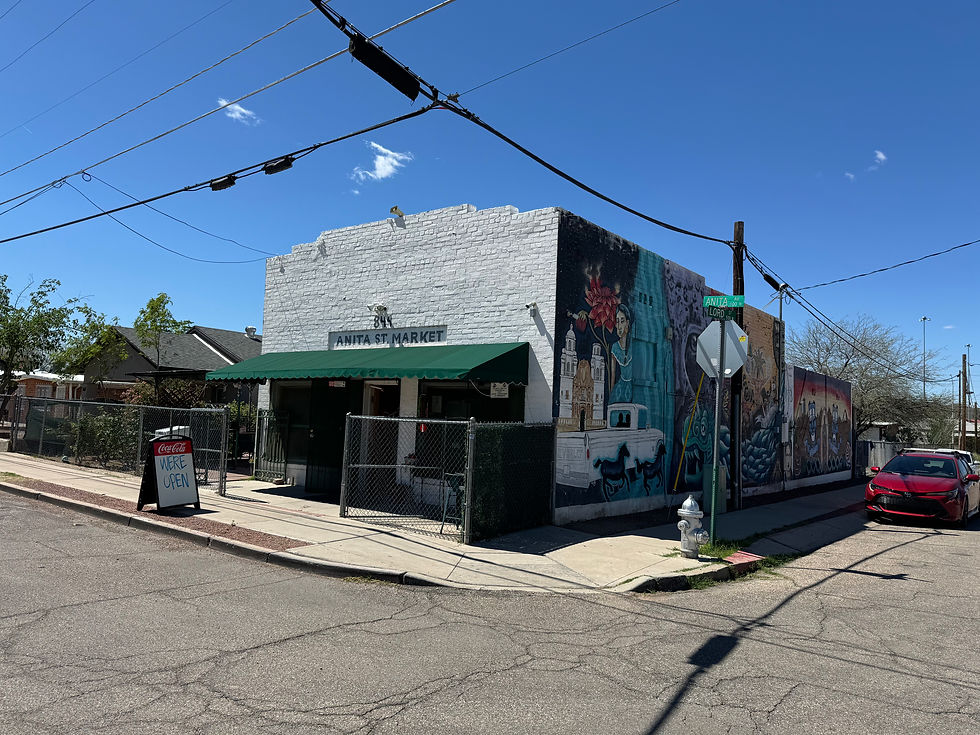

2025 ENDANGERED LATINX LANDMARKS
Tucson, Arizona
Anitas Street Market
Year Built:
1936

Built in 1936, Anita's Street Market first served as a Chinese-owned grocery store, reflecting the historic ties between Chinese and Mexican communities in Barrio Anita. In the 1980s, Grace and Mario Soto transformed it into a tortilla shop, carrying forward family recipes and creating one of Tucson's most beloved Latinx legacy businesses.
For decades, it has nourished the community with handmade tortillas, burritos, and traditional flavors, embodying Tucson's UNESCO City of Gastronomy status. Today, it faces urgent threats, including roof leaks, water intrusion, and a broken HVAC system. Preserving Anita's Street Market means safeguarding a neighborhood anchor and the intertwined cultural and culinary traditions that make Tucson's heritage unique.
“Anita Street Market has fought to survive in the face of displacement, gentrification, and predatory lending in Barrio Anita—one of Tucson’s oldest barrios. What kept us going was the unwavering support of our community, our loyal customers, and the strength my grandparents instilled in me.”
— Grace Soto, Restaurant Owner



